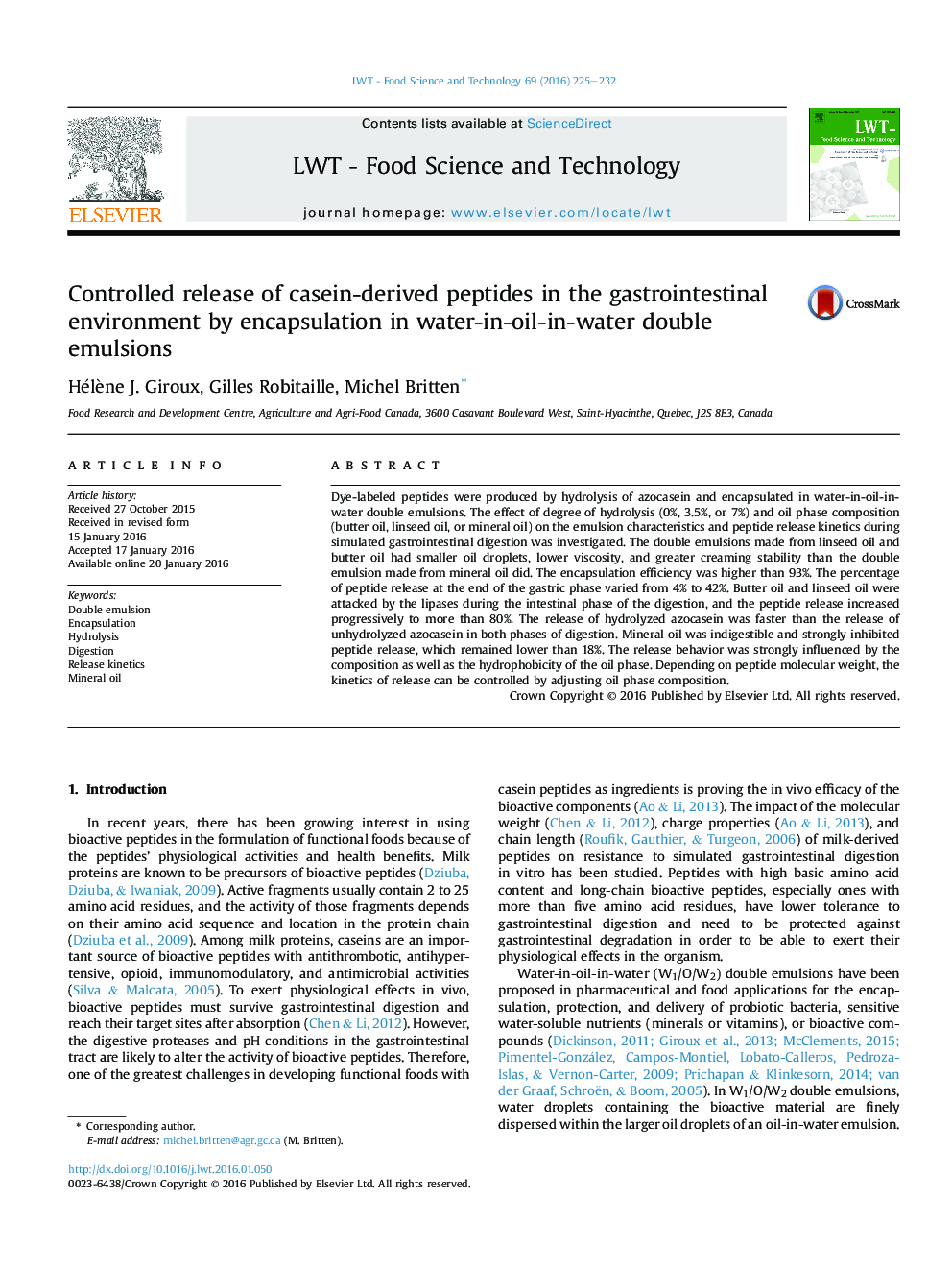| کد مقاله | کد نشریه | سال انتشار | مقاله انگلیسی | نسخه تمام متن |
|---|---|---|---|---|
| 4563741 | 1628528 | 2016 | 8 صفحه PDF | دانلود رایگان |
• The encapsulation efficiency of casein peptides was higher than 93%.
• Intestinal release of hydrolyzed peptides was faster than intact protein.
• Peptide gastric release decreased with increasing oil hydrophobicity.
• Peptide intestinal release decreased when using non-digestible oil.
Dye-labeled peptides were produced by hydrolysis of azocasein and encapsulated in water-in-oil-in-water double emulsions. The effect of degree of hydrolysis (0%, 3.5%, or 7%) and oil phase composition (butter oil, linseed oil, or mineral oil) on the emulsion characteristics and peptide release kinetics during simulated gastrointestinal digestion was investigated. The double emulsions made from linseed oil and butter oil had smaller oil droplets, lower viscosity, and greater creaming stability than the double emulsion made from mineral oil did. The encapsulation efficiency was higher than 93%. The percentage of peptide release at the end of the gastric phase varied from 4% to 42%. Butter oil and linseed oil were attacked by the lipases during the intestinal phase of the digestion, and the peptide release increased progressively to more than 80%. The release of hydrolyzed azocasein was faster than the release of unhydrolyzed azocasein in both phases of digestion. Mineral oil was indigestible and strongly inhibited peptide release, which remained lower than 18%. The release behavior was strongly influenced by the composition as well as the hydrophobicity of the oil phase. Depending on peptide molecular weight, the kinetics of release can be controlled by adjusting oil phase composition.
Journal: LWT - Food Science and Technology - Volume 69, June 2016, Pages 225–232
